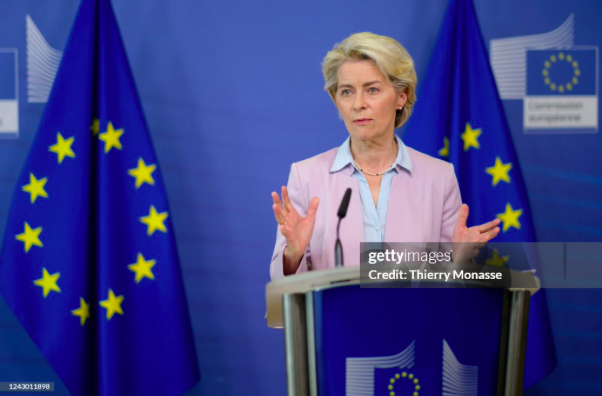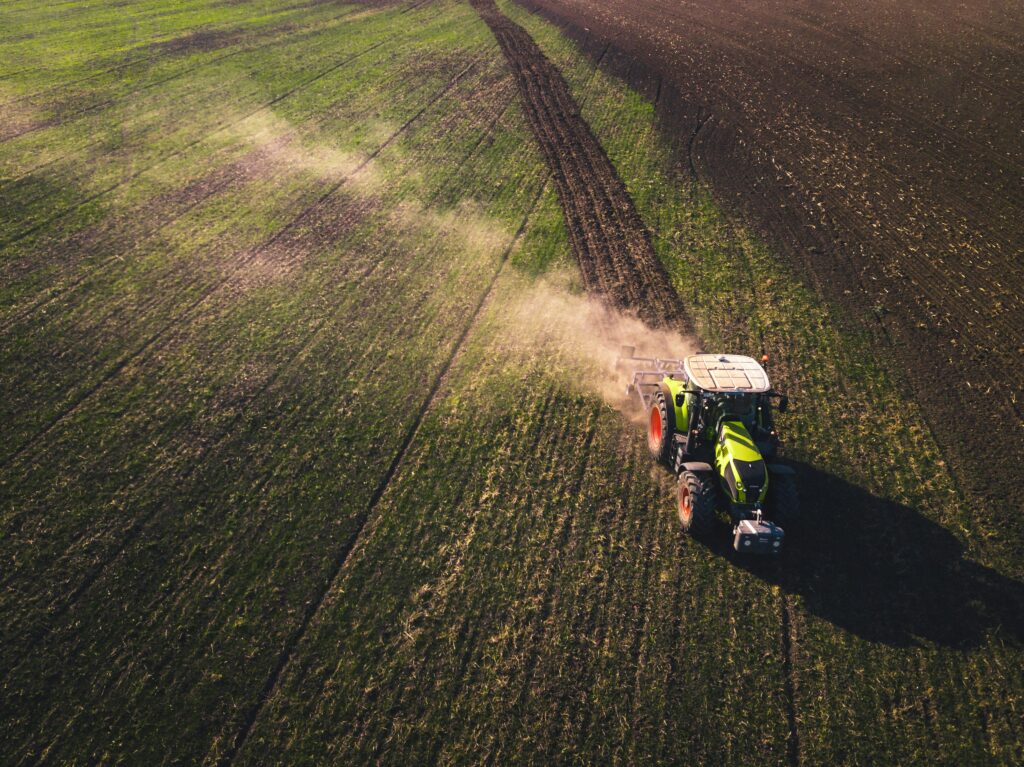The starting point : the Netherlands
What we can consider as the starting point of the agricultural crisis in Europe is the protests led by the farmers in the Netherlands last year. They dumped manure on the main roads and in front of the politicians’ houses and workplaces to express their opposition to new rules regarding nitrogen reduction.
Several reasons can explain the beginning of the agricultural crisis, which differ depending on the European country. The main cause of the crisis relies on European treaties and agreements made in the goals of reducing farmers’ use of substances categorized as damaging for the environment and health, as well as reducing their carbon dioxide emissions. The “Green Deal” is the main agreement signed by the member states of the European Union to achieve that goal: it set up important restrictions on the use of pesticides. European farmers are also worried about the high competitiveness of countries such as Ukraine, Brazil and Argentina whose farmers are not as restricted as European ones regarding environmental norms and animal welfare.
Overall, what nourishes the crisis is the contradiction farmers claim to observe in their government’s rules and goals. They feel that they are asked to do one thing and its opposite: increase their production to feed the growing population as well as reduce their carbon impact and their use of pesticides. If we add precarious living conditions and a complex administration that requires them to sometimes spend more time behind a desk than in their farms, strong public demonstrations seem to be the only way to be heard. European farmers denounce the fact that it is harder and harder to receive CAP subsidies due to the multiplications of environmental conditions they have to meet to benefit from them. A strong feeling of injustice grew among European farmers, as they have to face a reduction of their subsidies on the national and European level while they are also asked to increase their production.
Anger spreads to Germany
This wave of discontent among the French farmers can also be observed in their German neighbors. National demonstrations organized and coordinated by the Union of the German Farmers took place in the whole country ten days before the beginning of the French public demonstrations. This week of protests led by German farmers comes after Chancellor Olaf Scholz’s government announced economic restrictions on the 2024 budget in December 2023. These restrictions will have a direct impact on their daily work in the farms : the government plans to abolish financial aids for agricultural vehicles as well as reduce subsidies for agricultural diesel over the next two years. These changes mean a substantial increase in costs, on top of an already precarious situation for farmers.
From January 8 to 15 2024, German farmers took over the roads and the highways in the North East (Mecklenburg-Western Pomerania), Saxony, the South, the East and in the center of Berlin, in front of the Brandenburg Gate. The week of demonstrations ended on monday 15th of January, with over eight thousands tractors gathered in Berlin, reflecting the “overflow” of farmers who have nothing left to lose. These feelings of helplessness and anger are also shared by restaurant owners and truck drivers, who have to cope with rising VAT and road tolls.
The protests reach the capital of Europe : Brussels
On Thursday 1st of January 2024, a month after the first protests in Germany and following those in France, it is in Belgium that farmers are showing their anger, and more specifically in the heart of Brussels, the capital of Europe. Even though they are coming from several European countries such as France, Italy, Portugal and Spain, farmers’ demands are the same across Europe : an increase of their income, a simplification of the administration especially when it is related to the CAP, and a European preference on the import of certain agricultural products. The scale of this agricultural anger is not negligible, and the many similarities between movements and demands show a strong tendency towards the bureaucratization of the profession and the stagnation of farmers’ precarious living conditions throughout Europe.
The rally in Brussels echoes a European summit gathering the Heads of State and government of the twenty-seven countries of the European Union taking place at the same time. The choice of the day and location for this rally, in the heart of the district where the main European institutions are headquartered, shows that farmers’ anger has reached its peak after several months of protests.
What will the response of the European Union be ?
The movement is spreading even more these past few months, as similar anger rose among other European countries such as Spain, Hungary, Slovakia, Bulgaria or even Poland where the former Minister of agriculture resigned as a consequence of the conflict in April 2023. It is then clear that farmers have high expectations, and are calling for action at both national and European levels.

The President of the European commission, Ursula Von Der Leyen recognised that “Our farmers deserve to be listened to” and that “Many of them feel pushed into a corner”. She also announced on the 6th of February 2024 the suppression of a law project that planned to reduce the use of pesticides in the European Union by 50% by 2030, as an answer to the demonstrations across Europe. However, she highlighted the fact that Europe “needs to move to a more sustainable model of production” regarding the use of pesticides and the protection of the environment, especially soils. She recognised that “Perhaps we have not made that case convincingly” and hopes for a future agreement on the matter as she argues that “the topic stays”. To answer the crisis of the agricultural sector, she stated that ongoing dialogues between the European institutions and the representatives of the agricultural sector were taking place and will hopefully have a positive outcome.











1 comment
I’m often to blogging and i really appreciate your content. The article has actually peaks my interest. I’m going to bookmark your web site and maintain checking for brand spanking new information.